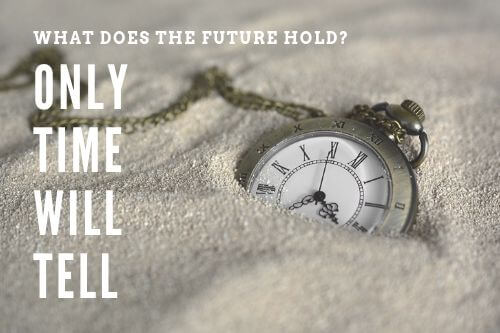
YouTube / iTunes / Spotify / Radio Public / Pocket Casts / Google Podcasts / Breaker / Overcast
Listen to ArtisanEnglish.jp posts & lesson intros here.
Phrase: Time will tell
From conception, nobody on earth has any idea what the future has in store for anyone.
Only time will tell.
The strange thing about humans and our understanding of our humanity is that we all know we cannot peer into the future.
Predicting the future is like standing next to the railing of a cruise liner at sea.
We can look over the edge into the deep and try to see the bottom of the Marianas Trench.
Unfortunately, we can only see a short distance, and that itself is only our best guess.
The rest is shrouded in darkness and the unknown.
Only time will tell us what the future holds.
Even then, it only reveals itself in the present.
Most of the time, we don’t even realize what’s happening to us while it’s happening.
Only in hindsight, sometimes years after the event is over, can we examine what happened, analyze it, and understand its significance.
I suppose I sound a bit profound, but that’s what the phrase time will tell means.
The truth of how things work out will only be revealed to us in the future.
Sure, we can try to make things happen, but that is only our best attempt based on what we have learned from the past.
We must understand what has happened in similar past situations to have a good understanding of what is possible.
The past is the best predictor of the future.
Only time will tell if a newborn baby grows up to be a future leader or mass murderer.
When you’re reading a book, of course, you can skip to the end to see what happens.
In life, however, you cannot jump to the end.
Heck, you don’t even know where the end is.
That’s why you accept that only time will tell.
Flesch-Kincaid Readability Test
This post is understandable by someone with at least a 7th-grade education (age 12).
On the Flesch-Kincaid reading-ease test, this post scores 78.
The easier a passage is to read, the higher the score on a scale of 0 – 100.

